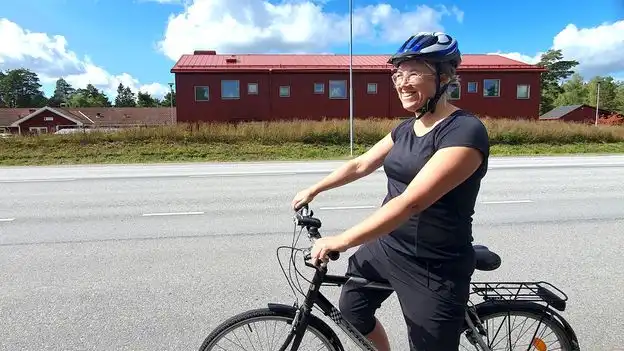Before the advent of fossil fuel-powered transport, travellers crawled across the surface of the planet slowly. The world, back then, was bigger; getting anywhere at all was an adventure in itself. Today, the world is small. I can live my life in London, UK, and still attend family events in Sweden, where I’m from, several times a year. I can have my cake and eat it.
That is, if it weren’t for one thing: the climate. The emissions released by aeroplanes mean flying in them is among the most carbon-intensive things most people are likely to ever do. Trying to avoid these emissions, I have experimented with ferry and train travel between the UK and Sweden for over a decade. But plane is almost always the cheapest option. So what about cycling?
[…]
But not all environmental benefits are measurable in emission units. “The bigger picture takeaway [with a long-distance ride] would be getting the conversation in people’s minds,” Yanocha says. “You would automatically think ‘oh, I’m just going to fly’, [but] actually you could do this on a bike.”
Cycling helps us appreciate nature, says Brandi Horton, vice president of communication at the US non-profit Rails to Trails Conservancy. "When you’re zooming around in your car or you’re on the train or you’re on a plane, you are not going slow enough to notice what lives [around] you. When you’re off the highway… you suddenly see something entirely different



I mean, traveling 40 km on a ferry doesn’t really change much. She relied on mechanized transport for 2% of her 1500 km journey. Just pretend that she started in Dunkirk or something and subtract the 140 km she traveled in the UK if the short ferry ride bothers you.